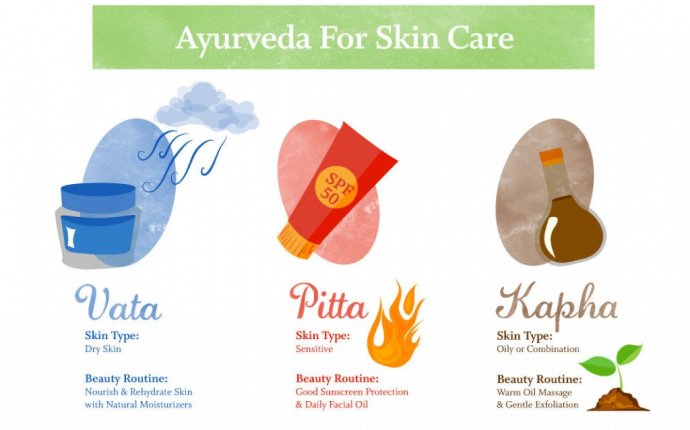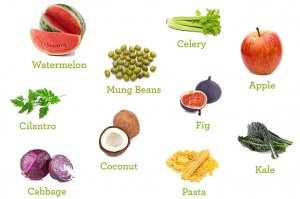
Ayurveda Pitta Food List

Fruits
Fruits that pacify pitta will generally be sweet and somewhat astringent. Dried fruits are typically also acceptable, but are best in small quantities, so as not to further accelerate pitta’s tendency toward rapid digestion. Fruits to avoid are those that are exceptionally heating or sour (like bananas, cranberries, and green grapes). You’ll find many fruits in both the favor and avoid columns below because different varieties of the same fruit can truly be pacifying or aggravating, depending on how sweet or sour they are. When trying to balance pitta, learning to distinguish between these tastes and choosing sweet fruits over sour ones is always very helpful.
And remember, fruits and fruit juices are best enjoyed alone – 30 minutes before, and ideally at least 1 hour after, any other food. This helps to ensure optimal digestion. Note: this rule does not apply to fruits that we typically consider vegetables (avocados, cucumbers, tomatoes, etc.). You will find these fruits listed among the “vegetables.”
|
Favor |
Avoid |
|---|---|
|
|
Vegetables
Vegetables that pacify pitta will generally be somewhat sweet and either bitter, astringent, or both. Many vegetables include some combination of these tastes; so experimenting with a wide variety of vegetables is a great way to diversify your pitta pacifying diet. Pitta can usually digest raw vegetables better than vata and kapha, but mid-day is often the best time of day to have them because digestive strength is at its peak. The only vegetables for pitta to reduce or avoid are those that are particularly spicy, heating, sharp, or sour – like garlic, green chilies, radishes, onion, and mustard greens.
|
|
|
Grains
Grains that pacify pitta are cooling, sweet, dry, and grounding. Grains tend to be staples in our diets, and overall, pitta benefits from their sweet, nourishing nature. You’ll also notice that many of the grains that benefit pitta are rather dry; this helps to offset pitta’s oily nature. When it comes to balancing pitta, avoiding grains that are heating (like buckwheat, corn, millet, brown rice, and yeasted breads) is the most important guideline.
|
|
Legumes
Legumes are generally astringent in taste and are therefore largely pitta pacifying, so feel free to enjoy a wide variety of them. Beans that are not appropriate for pitta are those that are especially sour or oily and, not coincidentally – also heating.
|
|
Dairy
Dairy products tend to be grounding, nourishing, and cooling, so many of them are balancing for pitta. Those to avoid are exceptionally sour, salty, or heating. As a rule, dairy milks (cow’s milk, goat’s milk, sheep’s milk, etc.) should be taken at least one hour before or after any other food. For this reason, avoid drinking milk with meals. Almond and rice milks are good substitutes, if you need to combine milk with other foods, or if you don’t digest dairy milks well.
|
|
Nuts & Seeds
Nuts and seeds tend to be extremely oily and are usually heating, so most of them are not terrifically balancing for pitta. That said, there are a few types of nuts, and several seeds that are acceptable in small quantities; these varieties tend to be less oily, and are either mildly heating or cooling in nature.
|
|
Meat & Eggs
Pitta does best with animal foods that taste sweet, are relatively dry (like rabbit or venison) and that are either mildly heating or cooling in nature. Meats that don’t work are those that are especially oily, salty, or heating (things like dark chicken, beef, salmon, or tuna).
|
|
Oils
Despite being oily in nature, pitta does well with a moderate amount of oil – as long as it is cooling. The very best oils for pitta are sunflower oil, ghee, coconut oil, and olive oil. It’s also important to keep in mind that toxins tend to concentrate in fats, so buying organic oils may be more important than buying organic fruits and vegetables.
- Almond Oil
- Apricot Oil
- Corn Oil
- Safflower Oil
- Sesame Oil
Sweeteners
Since the sweet taste is one that soothes pitta, most sweeteners are well tolerated by pitta, but some are simply too heating or too processed for pitta. In general, naturally occurring sweet tastes are far more balancing than sugary sweets, so even the appropriate sweeteners should be used in moderation.
|
|














